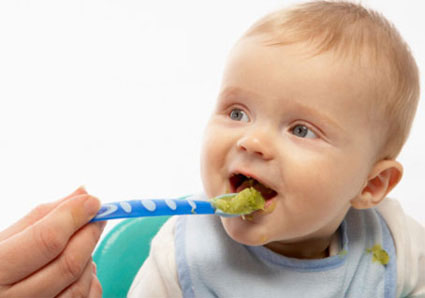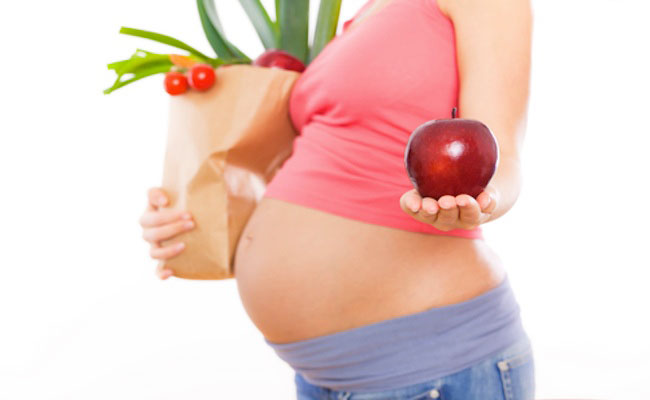Learn the basics of conception and plan your pregnancy. Find out how to increase the chances of a healthy pregnancy.There are people or circumstances when you would want to avoid a pregnancy, but there are times when you are desperate to get pregnant. Having a successful conception can be the most elusive thing under certain conditions, especially if you are above thirty or have some medical issues. So once you decide that you want a baby, you would like to plan your pregnancy accordingly. It is advisable that you follow some simple steps which will help you have a successful conception and enhance the chances of a healthy pregnancy. In this articleThe Basics of Conception – Track Your Ovulation PeriodTry Various Ovulation Prediction MethodsBasal Body TemperatureOvulation Predictor KitsThe Basics of Conception – Track Your Ovulation Period The moment you plan to have a baby, the first thing that the couple should do, is to track the ovulation dates. If you are not sure on how to go about it, here are the rules that will help you in calculating your most fertile days. The ovulation happens in the period between your first day of menstruation and the first day of your next cycle. Most women usually have a 28-day cycle, but it is not abnormal if the days vary a bit here and there. The math is to take the days of your cycle that is say 28 for an average woman and subtract 14. So the remainder 14, is the day of your ovulation precisely. But here again you need to keep it in mind that the ovulation may happen a day before or after the 14th day. When you want to get pregnant, you need to make sure that you have sexual intercourse on the days surrounding your ovulating date, that is, on the 12th day, the 14th day and also on the 16th day. This will enhance the chances of the sperm meeting the egg. The sperm has life for two days and if you keep having regular intercourse in this period then the chances of the sperm meeting the egg and fertilising it, to result in a successful conception gets higher. Try Various Ovulation Prediction Methods Seek help through the various ovulation prediction methods to know your precise ovulation date. It is very important that you know your ovulation date exactly when you are looking for a successful conception. There are various ways in which you can determine it. Here are a few of them: Basal Body Temperature Start keeping a chart for maintaining the basal body temperature. Once you start maintaining a chart you will get to know when your ovulation occurs every month. You need to check your body temperature every day and note it down in the chart. You will note that your chart is biphasic – or has two distinct phases. During the follicular phase or during the days when the ovulation happens, the temperatures clocked are low compared to the other phase that is the luteal phase or the post ovulation period, the temperatures clocked are high. There is a shift of 0.4 degrees Fahrenheit after the ovulation occurs. In most women the average temperature prior to ovulation is 96-98 degrees and it rises up to 97-99 degrees after the ovulation occurs. Experts say that basal body temperature is not the surest way to determine the date you ought to have intercourse for successful pregnancy. When you get to know that your ovulation has taken place by monitoring the rise in temperature, it may be too late to get the sperm meet the egg. So you need to know the ovulation dates through a regular maintaining of the chart and plan your dates for intercourse in the following cycle taking cues from the chart. Ovulation Predictor Kits These are readily available at chemist outlets. You can test your urine during your assumed ovulation phase to monitor the lutenizing hormone. When the LH hormone records a surge, it means that ovulation is soon to occur. It is suggested that you time your intercourse on that day and the following day to maximise the chances of successful conception. Finally, keep in mind that you need to be relaxed when you are planning a pregnancy. Eat healthy and stay away from all ill habits. Most important stay stress free, that way you will also enhance the chances of a successful conception.
Learn the basics of conception and plan your pregnancy. Find out how to increase the chances of a healthy pregnancy.There are people or circumstances when you would want to avoid a pregnancy, but there are times when you are desperate to get pregnant. Having a successful conception can be the most elusive thing under certain conditions, especially if you are above thirty or have some medical issues. So once you decide that you want a baby, you would like to plan your pregnancy accordingly. It is advisable that you follow some simple steps which will help you have a successful conception and enhance the chances of a
healthy pregnancy.
The Basics of Conception – Track Your Ovulation Period
The moment you plan to have a baby, the first thing that the couple should do, is to track the ovulation dates. If you are not sure on how to go about it, here are the rules that will help you in calculating your most fertile days. The ovulation happens in the period between your first day of menstruation and the first day of your next cycle. Most women usually have a 28-day cycle, but it is not abnormal if the days vary a bit here and there. The math is to take the days of your cycle that is say 28 for an average woman and subtract 14. So the remainder 14, is the day of your ovulation precisely. But here again you need to keep it in mind that the ovulation may happen a day before or after the 14th day.
When you want to get pregnant, you need to make sure that you have sexual intercourse on the days surrounding your ovulating date, that is, on the 12th day, the 14th day and also on the 16th day. This will enhance the chances of the sperm meeting the egg. The sperm has life for two days and if you keep having regular intercourse in this period then the chances of the sperm meeting the egg and fertilising it, to result in a successful conception gets higher.
Try Various Ovulation Prediction Methods
Seek help through the various ovulation prediction methods to know your precise ovulation date.
It is very important that you know your ovulation date exactly when you are looking for a successful conception. There are various ways in which you can determine it. Here are a few of them:
Basal Body Temperature
Start keeping a chart for maintaining the basal body temperature. Once you start maintaining a chart you will get to know when your ovulation occurs every month. You need to check your body temperature every day and note it down in the chart. You will note that your chart is biphasic – or has two distinct phases. During the follicular phase or during the days when the ovulation happens, the temperatures clocked are low compared to the other phase that is the luteal phase or the post ovulation period, the temperatures clocked are high. There is a shift of 0.4 degrees Fahrenheit after the ovulation occurs. In most women the average temperature prior to ovulation is 96-98 degrees and it rises up to 97-99 degrees after the ovulation occurs.
Experts say that basal body temperature is not the surest way to determine the date you ought to have intercourse for successful pregnancy. When you get to know that your ovulation has taken place by monitoring the rise in temperature, it may be too late to get the sperm meet the egg. So you need to know the ovulation dates through a regular maintaining of the chart and plan your dates for intercourse in the following cycle taking cues from the chart.
Ovulation Predictor Kits
These are readily available at chemist outlets. You can test your urine during your assumed ovulation phase to monitor the lutenizing hormone. When the LH hormone records a surge, it means that ovulation is soon to occur. It is suggested that you time your intercourse on that day and the following day to maximise the chances of successful conception.
Finally, keep in mind that you need to be relaxed when you are planning a pregnancy. Eat healthy and stay away from all ill habits. Most important stay stress free, that way you will also enhance the chances of a successful conception.

































